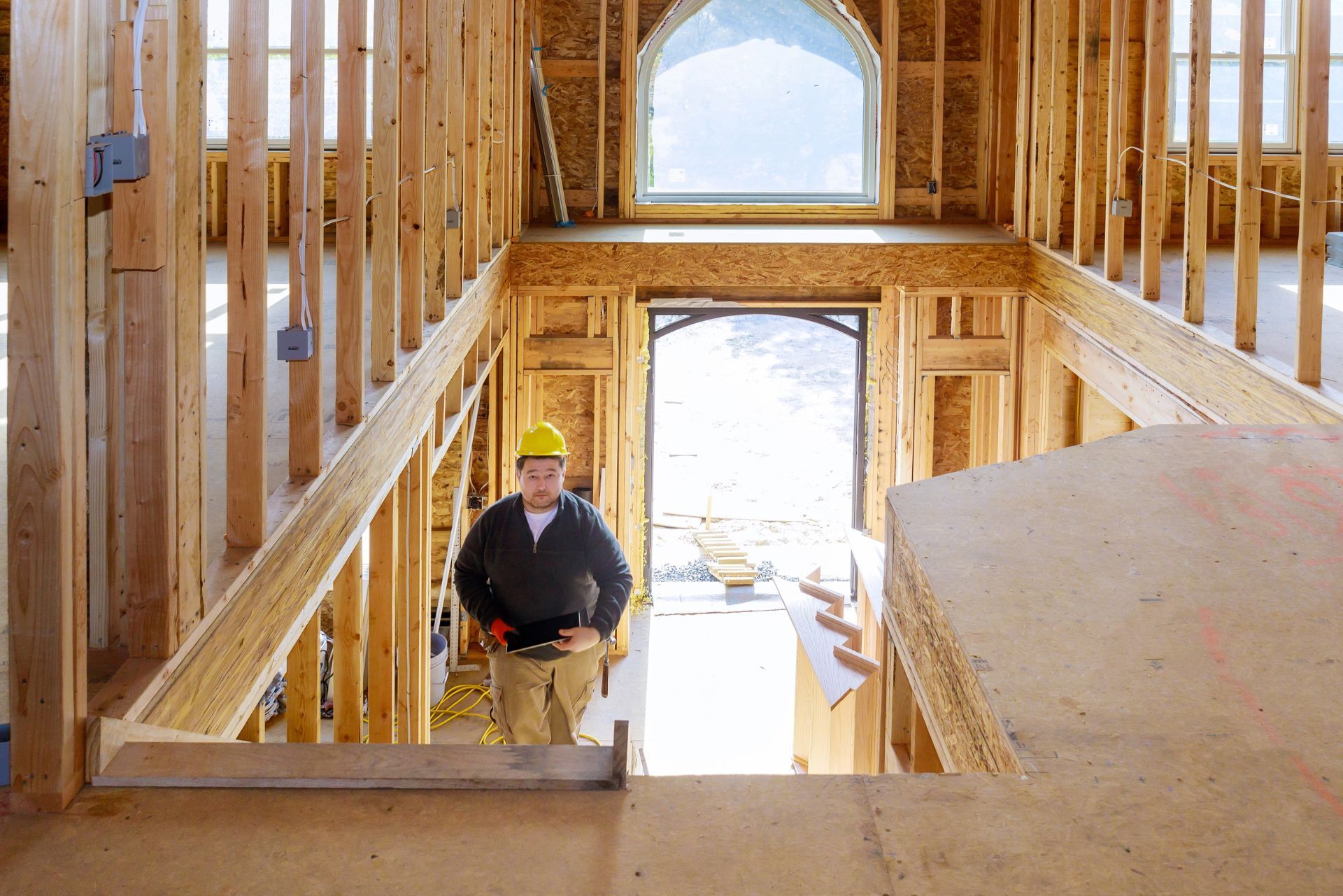
Top 3 Recommended Policies
In the construction industry, framing contractors play a crucial role in the building process. They are responsible for creating the framework that supports structures, making their work foundational to the success of any project. However, with this important role comes significant risks. To protect themselves and their businesses, framing contractors in Connecticut must consider obtaining the right insurance coverage. This article delves into the essentials of framing contractors insurance, including types of coverage, legal requirements, and tips for choosing the right policy.
Understanding Framing Contractors Insurance
Framing contractors insurance is a specialized type of coverage designed to protect contractors who focus on framing in residential and commercial construction. This insurance addresses the unique risks associated with the framing process, including accidents, property damage, and liability claims.
Why Insurance is Essential for Framing Contractors
Insurance is not just a legal requirement; it is a critical component of risk management for framing contractors. The construction industry is fraught with potential hazards, from workplace injuries to property damage. Without adequate insurance, a single incident could lead to financial ruin.
Moreover, clients often require proof of insurance before hiring a contractor. Having the right coverage not only protects the contractor but also builds trust with clients, demonstrating professionalism and reliability. This trust can translate into repeat business and referrals, which are vital for the growth and sustainability of a contracting business. Additionally, in a competitive market, showcasing comprehensive insurance coverage can set a contractor apart from others who may not prioritize risk management.
Types of Coverage Available
Framing contractors can choose from various types of insurance coverage, each tailored to address specific risks. Some of the most common types include:
- general liability insurance: This coverage protects against claims of bodily injury or property damage that occur during the course of work.
- workers' compensation insurance: This is mandatory in Connecticut and covers medical expenses and lost wages for employees injured on the job.
- Commercial Auto Insurance: If framing contractors use vehicles for work purposes, this insurance covers accidents and damages related to those vehicles.
- Equipment Insurance: This protects against loss or damage to tools and equipment used in framing projects.
In addition to these fundamental coverages, framing contractors may also consider specialized policies such as Builder's Risk Insurance, which protects against damage to a building under construction. This type of insurance is particularly important during the framing phase, where exposure to the elements can lead to significant losses. Furthermore, some contractors opt for Professional Liability Insurance, which covers claims related to errors or omissions in the services provided, ensuring that they are protected against potential legal disputes stemming from their work.
Understanding the nuances of each type of coverage is essential for framing contractors to tailor their insurance portfolio effectively. By assessing their specific needs and risks, contractors can create a comprehensive insurance strategy that not only safeguards their business but also enhances their reputation in the industry. This proactive approach to risk management can lead to greater peace of mind and a more resilient business model, allowing contractors to focus on what they do best—building quality structures.

Legal Requirements for Framing Contractors in Connecticut
Framing contractors in Connecticut must adhere to specific legal requirements regarding insurance. Understanding these regulations is crucial for compliance and to avoid potential penalties. The construction industry is inherently risky, and being informed about these legal obligations not only safeguards the contractor but also ensures the safety and well-being of workers and clients alike.
Workers' Compensation Insurance Mandate
In Connecticut, all employers are required to carry workers' compensation insurance if they have one or more employees. This insurance provides essential coverage for medical costs and lost wages due to work-related injuries. Failure to comply with this requirement can result in hefty fines and legal issues. Moreover, it is important for contractors to regularly review their workers' compensation policies to ensure they meet the evolving needs of their workforce, especially as project scopes and employee roles change. Keeping abreast of updates in state laws can also help contractors maintain compliance and avoid unnecessary liabilities.
General Liability Insurance Recommendations
While general liability insurance is not mandated by law, it is highly recommended for framing contractors. This coverage protects against lawsuits and claims that may arise from accidents or damages during a project. Many clients will also require proof of general liability insurance before awarding contracts. Additionally, having this insurance can enhance a contractor's credibility and reputation in the industry, as it demonstrates a commitment to professionalism and risk management. Contractors should also consider the potential benefits of supplementary insurance policies, such as equipment insurance or professional liability insurance, to further mitigate risks associated with their work and provide comprehensive protection for both themselves and their clients.
Choosing the Right Insurance Policy
When selecting an insurance policy, framing contractors must consider several factors to ensure they are adequately protected. The right policy can vary significantly based on the size of the business, the scope of work, and specific risks associated with projects.
Assessing Business Needs
Each framing contractor's business is unique, which means insurance needs will differ. A small contractor working on residential projects may require different coverage than a large company involved in commercial construction. Assessing the specific risks and needs of the business is the first step in choosing the right policy. For instance, a contractor specializing in high-end custom homes may face different liabilities compared to one focusing on multi-family units. Additionally, factors such as the geographic location of projects can influence risks, as certain areas may be prone to natural disasters or specific regulatory requirements.
Comparing Insurance Providers
Not all insurance providers offer the same coverage or pricing. It is essential to compare multiple providers to find the best fit. Look for companies that specialize in construction insurance, as they will better understand the unique challenges framing contractors face. Beyond just pricing, consider the provider's reputation and customer service track record. Reading reviews and testimonials from other contractors can provide valuable insights into how claims are handled and the overall satisfaction of policyholders. Furthermore, some providers may offer additional resources, such as risk management tools or safety training programs, which can be beneficial for contractors looking to minimize their exposure to risks.
Reading the Fine Print
Before finalizing any insurance policy, it is crucial to read the terms and conditions carefully. Understanding the coverage limits, exclusions, and deductibles will help avoid surprises in the event of a claim. If anything is unclear, asking questions or seeking clarification from the insurance agent is advisable. Additionally, it's wise to review the policy periodically, especially after significant changes in the business, such as acquiring new equipment or expanding the workforce. This proactive approach ensures that the coverage remains relevant and adequate, adapting to the evolving landscape of the contractor's operations.
Common Risks Faced by Framing Contractors
Framing contractors encounter various risks on the job site. Understanding these risks can help in selecting appropriate insurance coverage and implementing safety measures to mitigate them.
Workplace Injuries
Construction sites are inherently dangerous, and framing contractors are at risk of various injuries, from falls to equipment-related accidents. Workers' compensation insurance is crucial in covering these incidents, ensuring that injured employees receive the necessary medical care and financial support. Beyond just physical injuries, the psychological impact of workplace accidents should not be overlooked. Stress and anxiety can arise from the fear of injury, affecting overall worker morale and productivity. Implementing comprehensive safety training programs and regular health check-ups can help address these concerns, fostering a safer and more supportive work environment.
Property Damage
Accidental damage to a client's property can lead to costly repairs and potential lawsuits. General liability insurance provides coverage for such incidents, protecting contractors from the financial burden of property damage claims. However, the implications of property damage extend beyond immediate financial concerns. They can also strain relationships with clients and tarnish a contractor's reputation. Establishing clear communication with clients about project timelines and potential risks can help manage expectations. Additionally, documenting the work process through photographs or videos can serve as valuable evidence in case of disputes, providing an extra layer of protection for contractors.
Equipment Theft or Damage
Framing contractors rely heavily on tools and equipment, making them susceptible to theft or damage. Equipment insurance can safeguard against these losses, ensuring that contractors can replace or repair their tools without significant financial strain. Moreover, the risk of equipment theft often increases in urban areas or during off-hours when job sites are unattended. To combat this, contractors can invest in security measures such as surveillance cameras, secure storage units, and GPS tracking systems for high-value tools. These proactive steps not only protect valuable assets but also demonstrate professionalism and responsibility to clients, potentially leading to more business opportunities.

Cost of Framing Contractors Insurance
The cost of insurance for framing contractors can vary widely based on several factors, including the size of the business, the number of employees, and the types of coverage selected. Understanding these factors can help contractors budget effectively for their insurance needs.
Factors Influencing Insurance Premiums
Several elements can affect the premiums framing contractors pay for insurance:
- Business Size: Larger businesses with more employees and higher revenue may face higher premiums due to increased risk exposure.
- Claims History: A history of frequent claims can lead to higher premiums, as insurers may view the business as a higher risk.
- Coverage Types: The more comprehensive the coverage, the higher the premium. Contractors should balance their coverage needs with their budget.
Estimating Insurance Costs
To get a better idea of insurance costs, framing contractors should obtain quotes from multiple providers. Most insurance companies will offer free quotes based on the specific details of the business. This process can help contractors compare prices and find the best deal for their coverage needs.
Additionally, contractors should consider the specific risks associated with framing work, such as potential injuries on the job site or damage to materials. These risks can vary by location and project type, so it’s essential to communicate these details when seeking quotes. For instance, a contractor working primarily in residential settings may face different risks compared to one specializing in commercial projects. Understanding these nuances can lead to more tailored coverage options and potentially lower premiums.
Moreover, framing contractors should also be aware of any state-specific regulations or requirements for insurance coverage. Some states mandate certain types of insurance, such as workers' compensation or liability insurance, which can influence overall costs. Staying informed about these regulations not only ensures compliance but can also help contractors avoid costly fines or gaps in coverage that could jeopardize their business operations.
Claims Process for Framing Contractors Insurance
Understanding the claims process is vital for framing contractors to ensure they can navigate it smoothly in the event of an incident. Knowing how to file a claim and what information is required can expedite the process and minimize stress during challenging times. This knowledge not only helps in managing expectations but also empowers contractors to advocate effectively for their rights and entitlements under their insurance policy.
Steps to File a Claim
Filing a claim typically involves several key steps:
- Report the Incident: Notify the insurance provider as soon as possible after an incident occurs. Most companies have a specific timeframe within which claims must be reported.
- Gather Documentation: Collect all relevant information, including photos, witness statements, and any reports related to the incident.
- Complete the Claim Form: Fill out the necessary claim forms provided by the insurance company, ensuring all information is accurate and complete.
- Follow Up: After submitting the claim, follow up with the insurance company to check on the status and provide any additional information they may require.
Common Challenges in the Claims Process
While filing a claim may seem straightforward, contractors may encounter challenges along the way. Some common issues include:
- Delayed Responses: Insurance companies may take time to process claims, leading to frustration for contractors needing immediate assistance.
- Insufficient Coverage: If the policy does not cover certain incidents, contractors may find themselves facing unexpected out-of-pocket expenses.
- Disputes Over Claims: In some cases, insurance companies may dispute the validity of a claim, leading to lengthy negotiations.
In addition to these challenges, contractors may also face difficulties in understanding the fine print of their insurance policies. Many contractors assume that their coverage is comprehensive, only to discover limitations or exclusions when they need to file a claim. It is essential for framing contractors to regularly review their policies and consult with their insurance agents to clarify any ambiguities. This proactive approach can prevent misunderstandings and ensure that contractors are adequately protected against potential risks.
Moreover, the emotional toll of dealing with a claim can be significant. Incidents that lead to claims often involve unexpected disruptions to business operations, which can create financial strain and anxiety. Contractors may find it beneficial to develop a support network, whether through professional associations or peer groups, to share experiences and strategies for managing the claims process. This camaraderie can provide not only practical advice but also emotional support during what can be a challenging time.
Tips for Managing Insurance as a Framing Contractor
Effective management of insurance is crucial for framing contractors to ensure they are adequately protected while minimizing costs. Here are some practical tips to consider.
Regularly Review Insurance Policies
Insurance needs can change over time due to business growth, new projects, or changes in the workforce. Regularly reviewing insurance policies ensures that coverage remains adequate and relevant. Contractors should schedule annual reviews with their insurance agents to discuss any changes that may affect their coverage.
Implement Safety Training Programs
Investing in safety training for employees can significantly reduce workplace injuries and claims. By fostering a culture of safety, framing contractors can lower their risk profile and potentially reduce insurance premiums over time. Regular training sessions, safety meetings, and adherence to safety protocols can make a substantial difference.
Maintain Clear Communication with Clients
Clear communication with clients regarding insurance coverage can prevent misunderstandings and build trust. Contractors should provide clients with proof of insurance and explain the coverage in place. This transparency can enhance client relationships and lead to repeat business.
Conclusion
Framing contractors in Connecticut face unique challenges and risks in their line of work. Understanding the importance of insurance, legal requirements, and the types of coverage available is essential for protecting both the business and its employees. By choosing the right insurance policies, managing risks effectively, and maintaining open communication with clients, framing contractors can ensure their operations run smoothly and successfully.
In an industry where the unexpected can happen at any moment, having the right insurance coverage is not just a safety net; it is a vital component of a successful framing business. By investing time and resources into understanding and managing insurance needs, framing contractors can focus on what they do best: building strong foundations for the future.
Contact Us
Phone
Locations
Connecticut Location
703 Hebron Ave., 3rd Floor, Glastonbury, CT 06033
North Carolina Location
436 East 36th St., Charlotte, NC 28205


